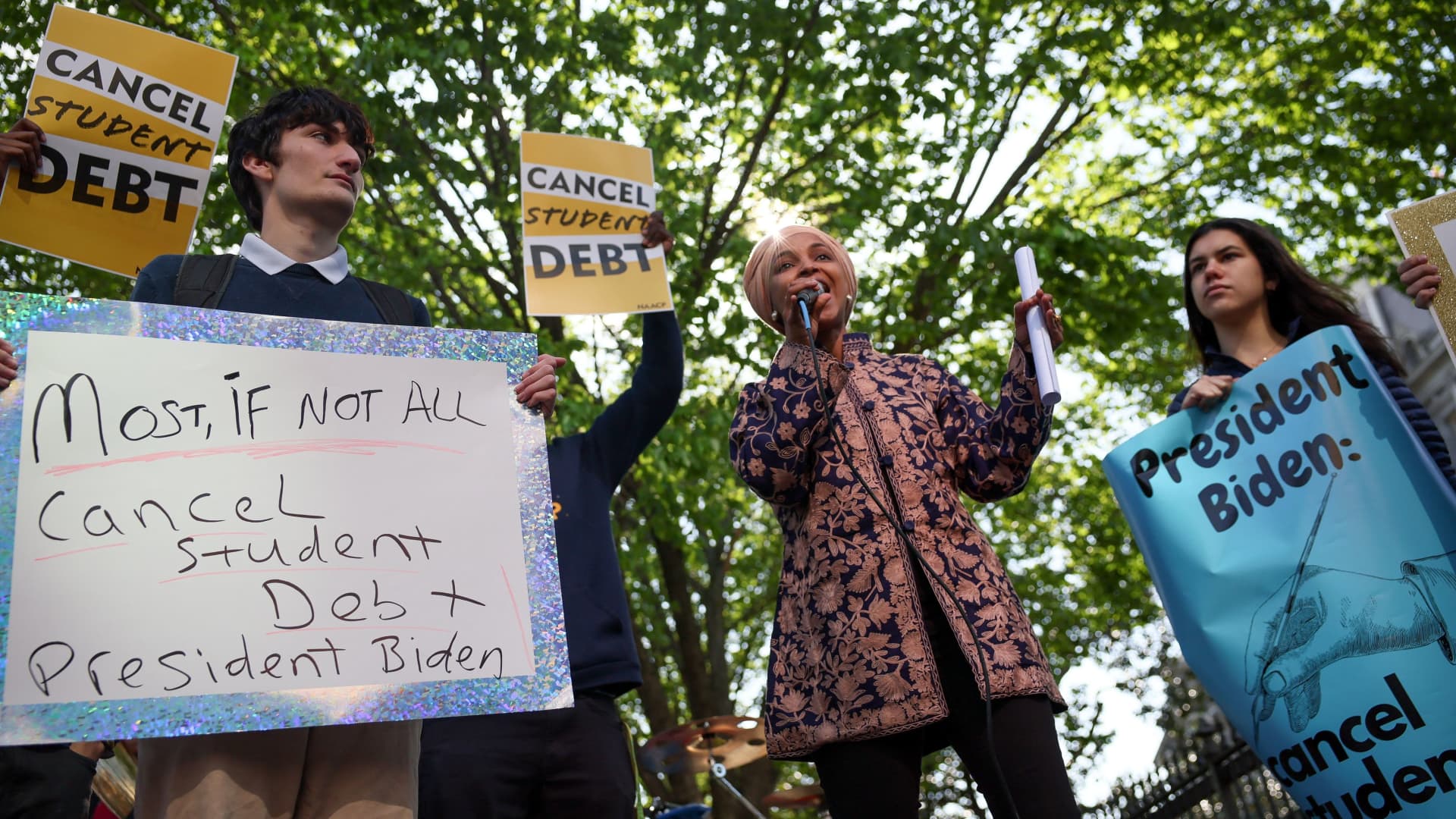Planning his budget for next month, Scott Heins doesn’t know if he’ll have the usual cash he needs for his health-care expenses and recently, thanks to inflation, his higher grocery bill.
That’s because, like tens of millions of other Americans, he doesn’t know if his student loan bill will be due.
“It’s just been radio silence from the Biden administration,” said Heins, 33, a freelance photographer in Brooklyn, New York, who owes more than $20,000. “It’s frustrating and stressful.”
Most federal student loan payments have been on pause since March of 2020, when the coronavirus pandemic hit the U.S. and crippled the economy. Former President Donald Trump extended the break several times, as has President Joe Biden.
More from Personal Finance:
75% of families don’t know a key date to get financial aid
Inflation drives college tuition prices higher
Would you be included in student loan forgiveness?
‘Another payment freeze is inevitable’
Earlier this month, White House Press Secretary Karine Jean-Pierre said Biden would make a decision on the student loan payment pause by the end of the month. The president has also said he’d announce how he plans to move ahead, if at all, with student loan forgiveness before then. He’s come out in support of canceling $10,000 for all borrowers, but is under intense pressure to deliver greater relief.
It’s now just two weeks before federal student loan bills are set to resume, and although there’s much speculation that another extension is likely with no plan to restart the payments in motion and the November midterms looming, the White House has said nothing else on the matter.
“The fact that they haven’t issued any guidance so close to the theoretical start date pretty much indicates yet another payment freeze is inevitable,” said Barmak Nassirian, vice president for higher education policy at Veterans Education Success, an advocacy group.
Borrowers aren’t prepared for payments to restart
Restarting the federal payments without more communication to student loan servicers and borrowers would lead to a disaster come September, said higher education expert Mark Kantrowitz. After going more than two years without the payments, he said, many borrowers will need financial help or to make changes to their account.
“The servicers’ call centers would be overloaded with calls from borrowers who need deferments or forbearances or who want to switch repayment plans,” Kantrowitz said. “And given just a week or two notice, some borrowers would struggle to find enough money to pay the bill.”
Delinquency rates could spike, he added. In a Student Loan Hero survey from March, nearly three-quarters of student loan borrowers said they weren’t financially prepared to resume their payments.
Scott Buchanan, executive director of the Student Loan Servicing Alliance, a trade group for federal student loan servicers, agreed that borrowers aren’t prepared for payments to restart after so little guidance.
“We need to be allowed by the Education Department to do our job of working diligently to educate borrowers on their options for a couple of months prior to payments beginning,” Buchanan said. “That isn’t happening.”
A spokesperson for the U.S. Department of Education said the agency continues to assess the impacts of the COVID-19 pandemic and the economy on student loan borrowers, and that it will communicate directly with borrowers about the end of the payment pause when a decision is made.
